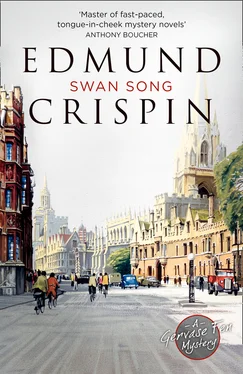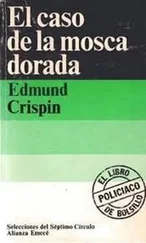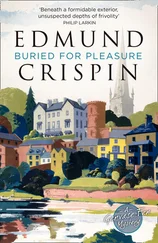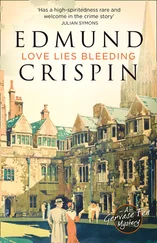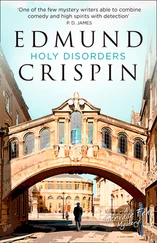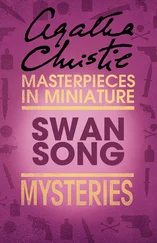The epithet was as a matter of fact slanderous. Adam Langley was entirely presentable, being thirty-five years of age, with kindly, regular, undistinguished features, thoughtful brown eyes, and a habit of courtesy which served admirably as a defence to his natural shyness. His chief defect lay in a certain vagueness which amounted sometimes to the appearance of aimlessness. He was trustful, modest, easily startled, and innocent of all but the most venial misdemeanours, and though at one time and another he had been moved to a gentle and – if the truth is to be told – rather clumsy amorousness, women had played no very important part in his peaceful and successful life. It was perhaps for this reason that he remained for so long totally unaware of Elizabeth’s feelings for him. He regarded her, at all events in the first instance, simply as a writer who had gained admittance to the rehearsals of Der Rosenkavalier in order to study the operatic background required for an episode in a new novel.
‘But schön !’ Karl Wolzogen hissed at him during a break in one of the piano rehearsals. ‘If she could only sing – ah, my friend, what an Oktavian!’ And more out of courtesy than because he was impressed by Karl’s enthusiasm – which tended, in truth, to be indiscriminate – Adam studied Elizabeth properly for the first time. She was small, he saw, exquisitely slender, with soft brown hair, blue eyes, a slightly snub nose, and eyebrows which were crooked and hence a trifle sardonic. Her voice – she was speaking at this moment to Joan Davis – was low, vivid, and quiet, with a not unattractive huskiness. Her lipstick had been applied with a rare competence, and of this Adam greatly approved, since it seemed to him that the majority of women must perform this operation in front of a distorting mirror or during an attack of St Vitus’s Dance. She was dressed soberly and expensively, though with a little too much masculinity for Adam’s taste. And as to character? Here Adam became a little bogged. He liked, however, her disciplined vivacity and her poise – the more so as there was no hint of arrogance about it.
Subsequently he was in the habit of attributing their marriage to the independent purposes of Herren Strauss and Hofmannsthal. The chief singing parts in Der Rosenkavalier are for three sopranos and a bass. Adam, being a tenor, had been fobbed off with the small and uninteresting role of Valzacchi, and this left him, at rehearsals, more often unoccupied than not. It was inevitable that he and Elizabeth should drift together – and so far, so good. But here an obstacle presented itself, in that it never for one instant occurred to Adam that Elizabeth might wish their relationship to rise above the level of disinterested affability on which it had begun. On this plane he obstinately remained, blind to winsomeness and affection, deaf to hints and innuendoes, in a paradisaically innocent condition of sexlessness which exasperated Elizabeth all the more since it was obviously natural and unconscious. For a time she was baffled. An open declaration of her feelings, she saw, was far more likely to put him on guard than to encourage him – and moreover her own characteristic reserve would invest such a declaration with a perceptible air of incongruity and falsity. It says much for the semi-hypnosis in which her mind was fogged that the obvious solution came to her only after a considerable time: plainly some third person must be found to mediate between them.
They had no mutual acquaintance outside the opera-house, and inside it there was only one possible choice for such a delicate mission. A woman was indicated – and a woman, moreover, who was mature, worldly, sensible, and friendly with Adam. So one evening, after the rehearsal was over, Elizabeth went to visit Joan Davis (who was singing the part of the Marschallin) at her flat in Maida Vale.
The room into which an elderly, heavy-footed maidservant ushered her was untidy – so untidy as to suggest the aftermath of a burglary. It soon became apparent, however, that this was the normal condition of Miss Davis’s belongings. The maid announced Elizabeth, clucked deprecatorily, made a half-hearted foray among a welter of articles on the sideboard, and then departed, tramping vehemently and muttering to herself.
‘Poor Elsie.’ Joan shook her head. ‘She’ll never reconcile herself to my slatternly ways. Sit down, my dear, and have a drink.’
‘You’re not busy?’
‘As you see’ – Joan waved a needle, a shrivelled length of silk, and a mushroom-shaped object constructed of wood – ‘I’m mending. But I can quite well go on with that while you talk to me … Gin and something?’
They chattered of commonplaces while they sat and smoked their cigarettes. Then, with some misgiving, Elizabeth broached the reason for her visit.
‘You know Adam,’ she began, and was taken aback at having made so idiotic a statement. ‘That is to say—’
‘That is to say,’ Joan put in, ‘that you’re rather taken with him.’
She grinned disconcertingly. She was a tall, slender woman of about thirty-five, with features which, though too irregular for beauty, were yet remarkably expressive. The grin mingled shrewdness with a cynical, impish vivacity.
Elizabeth was frankly dismayed. ‘Is it as obvious as all that?’
‘Certainly – to everyone except Adam. I’ve thought once or twice of letting even him into the secret, but it hardly does for an outsider to interfere in these things.’
‘As a matter of fact’ – Elizabeth blushed slightly in spite of herself – ‘that’s exactly what I came here to ask you to do.’
‘My dear, what fun. I shall enjoy it thoroughly …’ Joan paused to reflect. ‘Yes, I see now that it’s probably the only way. Adam is not, in our grandparents’ phrase, a “person of much observation”. But he’s a good-hearted creature, all the same. Blessings to you both. I’ll tackle him tomorrow.’
And this she did, carrying Adam off, in a suitably idle moment, to the green-room. What she had to tell him took him completely unawares. He expostulated, feebly and without conviction. Subsequently Joan left him to meditate upon her words and returned to the rehearsal.
His initial surprise gave place almost at once to an overwhelming sense of gratification – and this by no means for reasons of vanity, but because an obscure sense of dissatisfaction from which he had recently suffered was now entirely dissipated. For him, too, there was a refocusing, as though the pattern of a puzzle had at last become apparent – become, indeed, so self-evident that its previous obscurity was almost incomprehensible. Beatitude and embarrassment clamoured equally for recognition. Ten minutes previously he had regarded Elizabeth as a pleasant acquaintance; now he had not the least doubt that he was going to marry her.
He was recalled to the stage, and there participated with decided gusto in the discomfiture of Baron Ochs von Lerchenau.
But when actually confronted with Elizabeth his shyness got the better of him. During the week that followed, indeed, he went so far as to avoid her – a phenomenon which filled Elizabeth with secret dismay. She came to believe, as the days passed, that the news of her feelings must have offended him, though as a matter of fact the reason for his unsociability lay in a sort of coyness, for which he severely reproached himself, but which for some time he was quite unable to overcome. In the end it was his growing impatience with his own puerility which brought him to the point. It happened towards the close of the first dress-rehearsal. Bracing himself – in a fashion more appropriate to some monstrous task like the taking of a beleaguered city than to the wooing of a girl whom he knew perfectly well to be fond of him – he went to speak to Elizabeth in the auditorium.
Читать дальше
